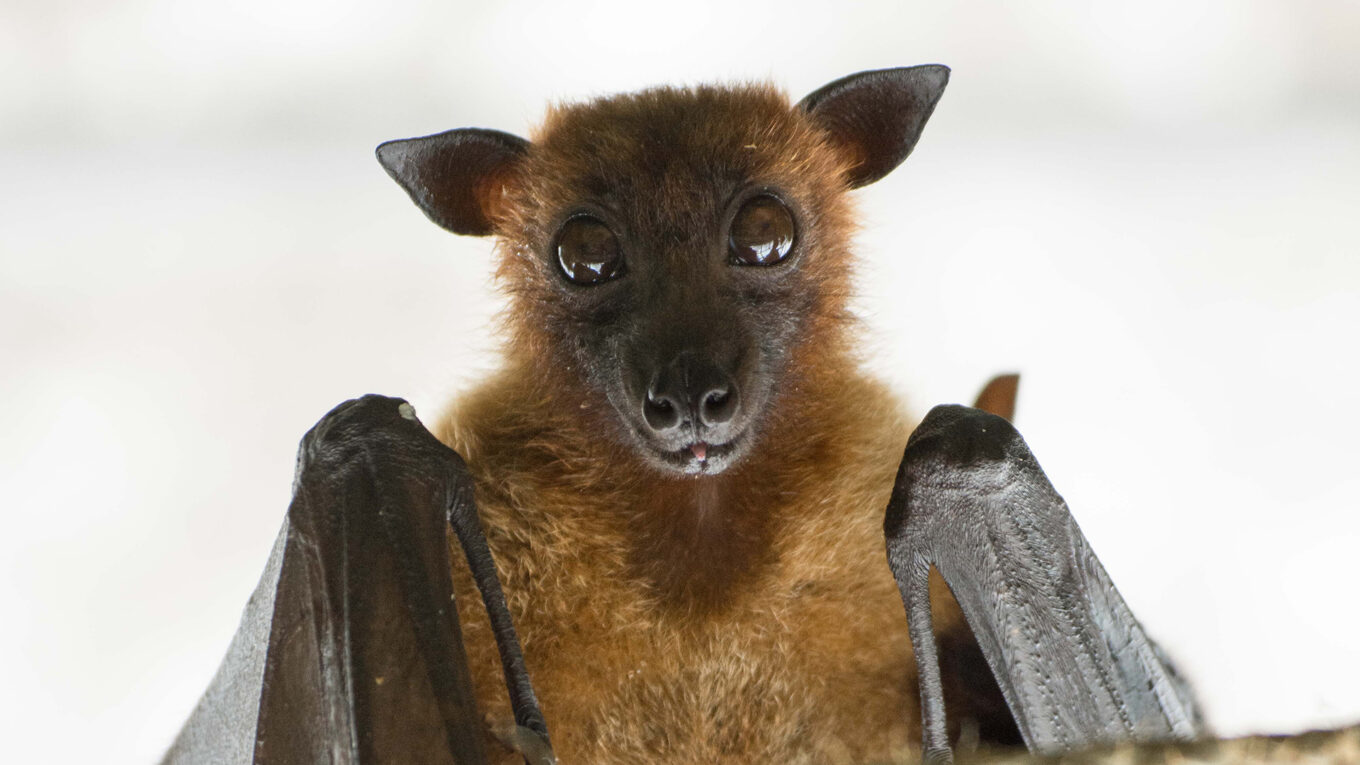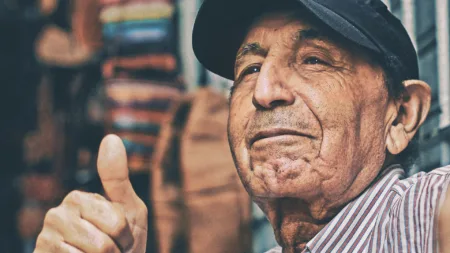In northeastern Australia, you’ll find the Tablelands, an area rich in diverse plant and animal life: lush vegetation, lots of rain, brightly colored birds and scores of shy nocturnal animals with big eyes.
Most unusual, and beautiful in its own way, is the flying fox. Its face is narrow with a collar of red fur, cute as a puppy. Arching out of the shoulders are paper-thin wings, black as the night. When hanging from a tree, the flying fox’s wings swaddle it like a baby while it sleeps. At night, the flying foxes take to the skies by the thousands in search of fruit. But along the coastline, a parasite has moved in, and many of the flying foxes are being infected. That’s where Pam Tully comes in.
Mothers carrying babies fall paralyzed from the trees, and each day, Pam walks miles in the rainforest, collecting babies still clinging to their dying mothers. It’s arduous, humid, exhausting. Pam relies on a few volunteers to help rescue the flying foxes during the migration season. Usually, they are college students who come Down Under for a semester of life in the rainforest. Canace came from America to lend a hand to her aunt Pam, and to look for some kind of purpose in life after her mother passed away.
Losing your mother is never easy, but for a teenage girl, the loss at a time of emotional need and guidance is particularly devastating. Going off to live in wilderness half a world away seemed a good thing to do. Pam accepted her with open arms and invited Canace to stay as long as she wanted. After all, she did need the help. So Pam taught Canace to feed the baby flying foxes, keep them wrapped in nappies, nurse them back to health and coax them back into the wilderness to rejoin their families.
Day after muggy day, Pam led Canace through the rainforest, collecting babies and bringing them back to the shed where they were treated by a veterinarian, fed every two hours by bottle and even taught to fly. Each flying fox released back into the wild was a victory. And each time one winged away, the loss Canace felt seemed just a little bit less.
We never really get over the loss of a loved one, but when we take care of a vulnerable creature, or reach out to somebody else who is hurting, the wound heals just a little bit, and the hurt becomes a memory of being loved.
Take Care…PassItOn.com
This article is written by and published in collaboration with The Foundation for a Better Life® The Foundation for a Better Life® promotes positive values to live by and pass along to others.
Copyright © 2022 | The Foundation for a Better Life® All rights reserved. | www.passiton.com












